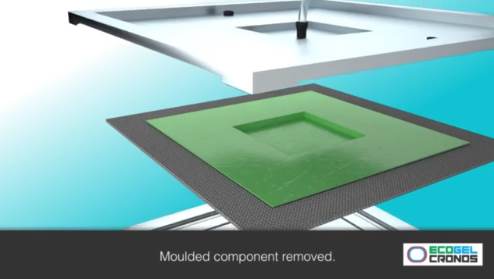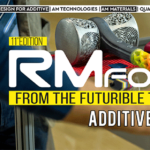Composites have emerged in recent years as a valuable class of engineering materials. They offer many attributes not attainable with other materials – they are lightweight, yet offer stiffness – and as a result can be found in a range of high tech applications such as satellites and high performance aircraft. Gel coats are used to provide a high-quality finish onto the visible surface of fibre-reinforced composite materials, which are then used in the manufacture of complex moulded parts.
This latest manufacturing breakthrough, achieved through the EU-funded ECOGEL CRONOS project, will therefore be of interest to mass production vehicle manufacturers, where even slight increases in efficiency and reductions in cost can lead to significant savings. The transport industry is also facing increasingly stringent environmental regulations which aim to increase the power-to-weight ratio of cars, reduce overall weight and thereby reduce vehicle emissions. Composites have been identified as a key enabling technology that meets weight, cost and production rate requirements.
The high tech aerospace sector, an industry that is characterised by high costs and low productivity, also stands to benefit. New manufacturing technologies that can achieve advanced aerospace materials at lower cost – and with less impact on the environment – will help ensure that Europe’s aerospace industry has a strong future.
Different manufacturing techniques were developed within the ECOGEL CRONOS project and combined with suitable additives in order to obtain highly reactive, stable and cost-effective powder gel coat formulations. The new process has been demonstrated to reduce both gelcoat manufacturing times and production emissions.
Project trials were carried out for composite parts used in tractors and car doors, and modelling tasks were employed to determine electrical conductivity thresholds. In a test run, a fully finished powder gel coat was delivered 80 % quicker compared to conventional liquid gel coats.
The three year project, which is scheduled for completion at the end of August 2016, is now focusing on developing new composite moulds for carbon fibre laminate. While traditional composites used in the automotive industry have typically used high cost aerospace-derived technology for a technique known as Sheet Moulding Compound (SMC), the ECOGEL CRONOS project is concentrating on Resin Transfer Moulding (RTM) to provide greater efficiency in terms of cost and production, with the same performance and quality.
The new RTM process, which involves reusable electrically conductive, temperature controlled skins, allows release agents, gel coats and fibres to be applied to the composite skin whilst another one is being injected. In this way it is possible to increase production for a relatively small additional investment. A pilot plant mould has been built and tests are currently being run.
Successful results could open the door to composite materials being used in other sectors, such as consumer, infrastructure and sporting goods industries. The transition to other mass-production sectors has to date been slow, in part because of the cost in manufacturing these materials, and the advances achieved through the ECOGEL CRONOS project could help address this challenge.
For further information please visit: www.ecogelcronos.eu












